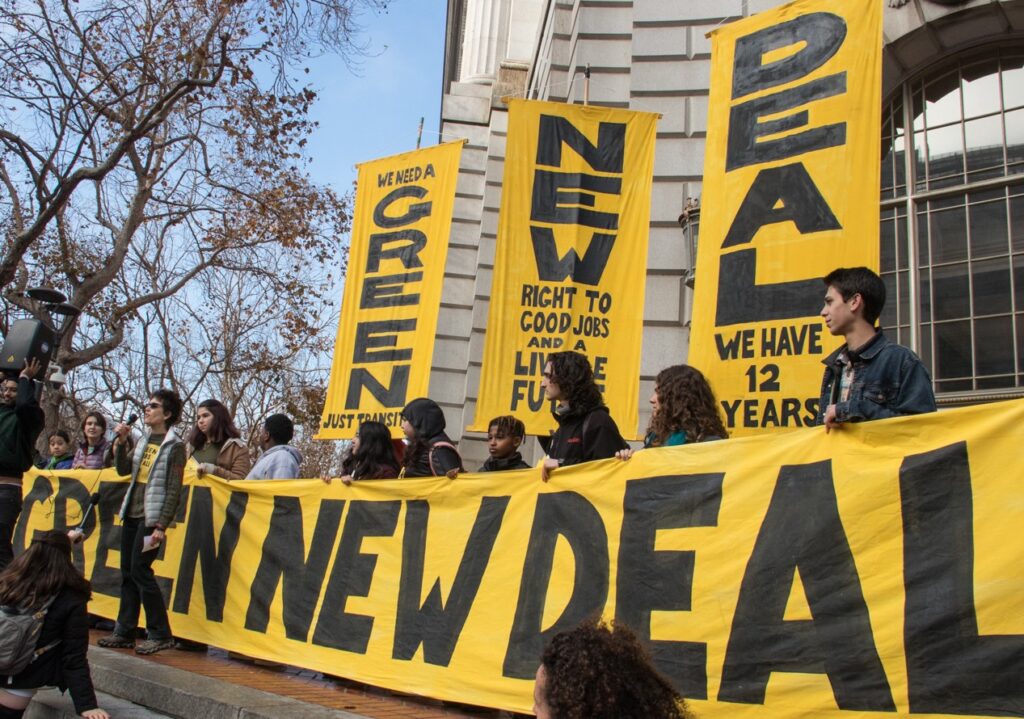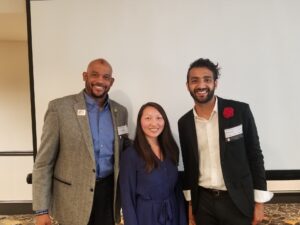
Last weekend, I attended the Third National Labor Convergence on Climate here in Chicago. The conference, organized by the Labor Network for Sustainability, aimed to strengthen the labor movement’s voice to help shape the Green New Deal. Hundreds of activists and advocates from the labor, environmental, and economic justice movements participated. And although everyone may not have agreed on the Green New Deal or where it should head, the conference fostered essential dialogue across movements, especially about those who are too often divided and separated by barriers, such as geography and community segregation.
One key question that I came away asking myself was how our push for climate justice can truly identify and address the intersections between economic, environmental, and social issues in the transition to a carbon-free country. How do we confront the social harms experienced by marginalized workers and collaborate towards a Green New Deal?
On day one, an impressive panel of speakers, including Sara Nelson, International President of the Association of Flight Attendants-CWA; Cecile Roberts, President of the United Mine Workers of America; and Maria Castaneda, Secretary Treasurer of 1199 SEIU United Healthcare Workers East kicked off the conference. Responding to efforts by some in the media to divide labor and environmental groups, President Nelson affirmed: “We cannot allow this idea that labor is opposed to addressing climate change to exist.” While the environmental and labor movements have been too often pitted against each other, both are essential to building robust policy solutions for a sustainable, equitable economy — one that works for our planet and our workers.

But we cannot expect to bridge the labor and environmental movements without understanding and addressing the struggles of the people left out of those movements — especially those from vulnerable and marginalized communities. This point became especially clear to me as I listened to Saket Soni, the Executive Director of the National Guestworker Alliance and Resilience Force, tell the story of two immigrant workers who struggled to rebuild neighborhoods after natural disasters, like Hurricane Katrina, working precarious jobs amid turmoil in their own lives. Listening to this story reminded me that we don’t talk enough about the future of immigrants in low-wage work as we face the challenges of climate change.
Coming out of the conference, I found myself thinking about a few major issues. First, as advocates, we must do the hard work of asking ourselves who isn’t in the room during discussions about the Green New Deal, and whose voices have been historically excluded or underrepresented in our movements. We will be in a better position to tackle environmental and economic problems if we understand how these issues intersect with systemic racism and sexism for people in and out of the workplace.
Secondly, we won’t get to a Green New Deal that benefits nearly every person in America and overhauls industries across the nation unless we develop more inclusive processes to get there. That means engaging rank-and-file union members, low-wage and non-union workers, fossil fuel workers, immigrants, communities on the front-lines of climate change and industrial pollution, low-income communities, and people of color.
My home state, Illinois, is leading the way on inclusive solutions and policy-making. In 2016, the Illinois legislature passed the Future Energy Jobs Act (FEJA), which “ramped up renewable-energy development in the state with a particular focus on bringing solar-related jobs to low-income communities.” But according to Juliana Pino, the Policy Director of the Little Village Environmental Justice Organization (LVEJO), “Communities most impacted were originally not involved in FEJA. FEJA was the first time environmental justice impacted communities had a seat at the table with energy companies.” Because low-income and environmental justice advocates, such as LVEJO, ended up playing a key role in the bill’s formation, FEJA included large increases to workforce training for folks historically excluded from the renewable energy industry, as well as incentives to hire returning citizens with records and alumni of the foster care system.
Last weekend’s conference was just the beginning of conversations that must continue nationwide. It’s up to all of us in the labor and environmental movements to embrace these hard conversations about what a more inclusive, equitable policy-making process looks like to arrive at concrete policy solutions for a Green New Deal that will propel us towards a better future. We need to shape the Green New Deal — before lawmakers in Washington, corporate interests, and lobbyists shape and weaken it for us.
Chanelle Yang is a Senior Policy Associate with Jobs to Move America based in Illinois.
Image credit: Peg Hunter/Flickr
